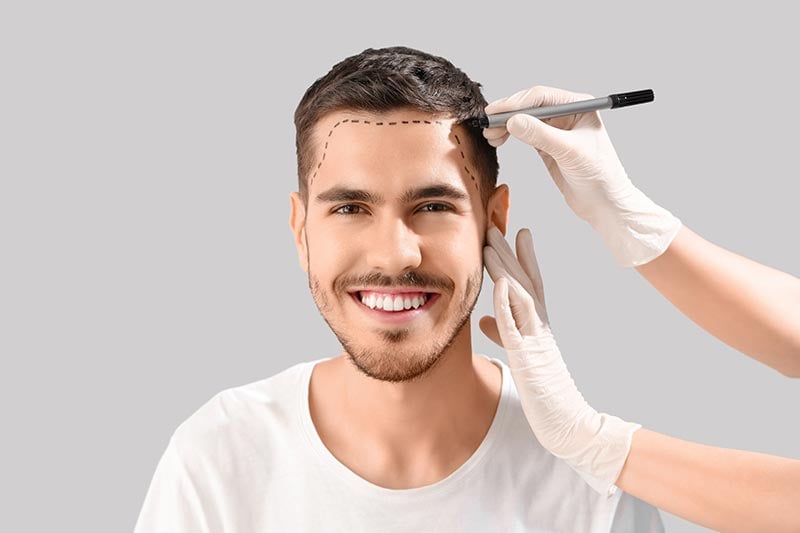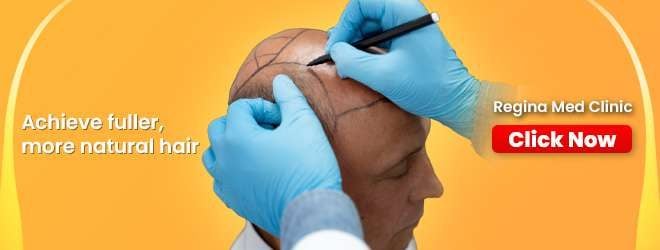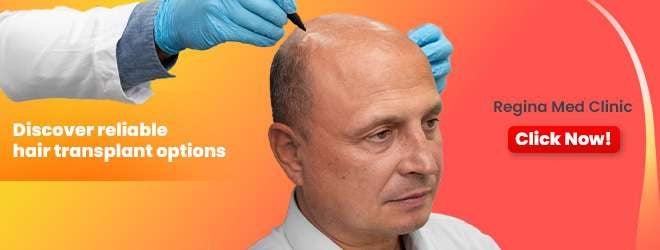How to Eat After a Hair Transplant?
Hair transplant is a popular method for individuals seeking healthy and thick hair. However, after the hair transplant procedure, it is crucial to pay attention to nutrition to ensure healthy hair growth and prevent hair loss. Proper nutrition plays an essential role in the recovery process and the success of the hair transplant.
In this article series, you can follow guidelines on what to do and what to avoid when it comes to nutrition after a hair transplant. By following these tips, you can support the healing process and enhance the results of your hair transplant. Stay tuned to learn about the essential dietary recommendations and key factors to consider for the best possible outcome.


İÇİNDEKİLER
Protein-Rich Foods: Essential Building Blocks for Hair Transplant
Protein is a fundamental building block for our body. Our hair is also made up of proteins, and to grow healthily, it requires an adequate intake of protein. Protein-rich foods are particularly important for hair transplant procedures.
Eggs: Eggs are rich in high-quality proteins, vitamins, and minerals. They also contain biotin and B vitamins, which are crucial for hair health.
Onions: Onions contain sulfur, which nourishes hair follicles and promotes hair growth. They also help strengthen the hair.
Yogurt: Yogurt is packed with protein and probiotics. Probiotics support gut health, which, in turn, positively affects hair health.
In addition to protein-rich foods, other food groups also have an impact on hair health. The intake of vitamins and minerals is vital for hair transplant success. Consuming foods rich in vitamins and minerals helps maintain hair health and promotes faster growth. Furthermore, a diet enhanced with antioxidants is an important strategy for protecting hair follicles. After a hair transplant, maintaining hydration and consuming healthy fats supports the healing process.

Consult Now!
Fill out the form to get detailed information about the hair
transplant process and personalized solutions tailored for you!
The Importance of Vitamin and Mineral Intake: Foods that Support Hair Health
The impact of vitamin and mineral intake on hair health is crucial. To keep our hair strong and healthy, we need proper nutrition. Consuming foods rich in essential vitamins and minerals, which are the building blocks for healthy hair, is important.
Deficiencies in vitamins and minerals can lead to hair loss and weak, brittle hair. With proper nutrition, we can ensure that our body gets the vitamins and minerals it needs. Therefore, it’s vital to consume foods rich in vitamins and minerals to support hair health.
Being aware of the importance of vitamin and mineral intake is one of the key steps in maintaining and improving our hair health. To maintain healthy hair, it’s necessary to consume foods that contain vitamins and minerals such as Vitamin A, B vitamins, Vitamin C, iron, and zinc.
Antioxidant-Enhanced Diet: Strategies for Protecting Hair Follicles
Firstly, it’s important to understand why antioxidants are essential for protecting hair follicles. Hair follicles are vital for hair growth and health. However, oxidative stress can damage these follicles, leading to hair loss and thinning. Antioxidants help protect the follicles by reducing the impact of free radicals and preserving cells.
Consuming foods rich in antioxidants is part of strategies to protect hair follicles. These foods are typically found in colorful vegetables and fruits. Specifically, foods rich in antioxidants such as oranges, blackberries, avocados, carrots, red peppers, spinach, and broccoli are ideal options for supporting hair health. These foods are packed with Vitamin C, Vitamin E, beta-carotene, and other antioxidants, which have powerful properties to protect hair follicles and prevent hair loss.
The Role of Hydration: Importance of Water Intake After Hair Transplantation
Hydration is crucial for healthy hair growth. After a hair transplant, ensuring that the body’s water needs are met plays a significant role in speeding up the recovery process and promoting a healthy scalp. Water is one of the body’s main components, helping cells to function properly. It also helps maintain moisture in the hair and supports the healthy functioning of hair follicles.
Proper hydration reduces hair loss and accelerates recovery after a hair transplant. When the body experiences dehydration, hair follicles may struggle to receive adequate nutrients and oxygen, which can lead to weak, brittle, and lifeless hair. Therefore, drinking plenty of water after a hair transplant is an important step in supporting hair health.
To ensure sufficient water intake, aim to drink at least 8-10 glasses of water per day. Additionally, when exercising or in hot climates, you may need to drink more water to replenish the body’s water loss. It is also important to avoid caffeinated and alcoholic beverages, as they can lead to dehydration.
Foods That Reduce Hair Loss: Natural Treatment Supports
Proper nutrition has a significant impact on overall health and hair health. Unhealthy eating habits can trigger issues like hair loss. Fortunately, there are natural treatment supports that can help reduce hair loss.
Fish: Rich in omega-3 fatty acids, fish is extremely beneficial for hair health. Regular consumption of fatty fish like salmon, sardines, and tuna can be effective in reducing hair loss. Omega-3 fatty acids nourish the scalp and help hair follicles remain healthy.
Leafy Green Vegetables: Spinach, kale, and other leafy greens support hair health due to their iron and folic acid content. Iron deficiency is a common factor contributing to hair loss. Therefore, regularly consuming these iron-rich vegetables is important. They also strengthen hair follicles with the vitamins and minerals they contain.
Eggs: Rich in protein, eggs are an essential food for supporting hair health. They contain nutrients like biotin and B vitamins, which are crucial for hair health. Getting enough protein helps keep hair strong and healthy. Therefore, regularly eating eggs can help reduce hair loss.
Omega-3 Fatty Acids and Hair Health: Fish and Other Sources
Proper nutrition is essential for maintaining and improving hair health. Omega-3 fatty acids play a crucial role in hair growth, scalp health, and managing hair loss. Since these fatty acids cannot be produced naturally by the body, they must be obtained from external sources. Fish, particularly fatty fish such as salmon, sardines, and mackerel, are rich in omega-3 fatty acids. Additionally, plant-based sources like walnuts, chia seeds, and flaxseeds also provide omega-3s.
In addition to fish, omega-3 can be obtained from plant-based sources. Walnuts, chia seeds, and flaxseeds contain omega-3 fatty acids and can support hair health. These plant sources are especially important for individuals following vegan or vegetarian diets. For those looking to take omega-3 supplements, it is advisable to consult a doctor to choose the right and reliable supplement.
Iron-Rich Foods and Strategies to Improve Blood Circulation
Iron-rich foods have many positive effects on health, especially when it comes to improving blood circulation. Good blood circulation helps deliver more oxygen and nutrients to hair follicles, which stimulates hair growth. Iron deficiency can lead to hair loss and slow hair growth. Therefore, it is important to incorporate iron-rich foods into your diet and apply strategies to boost circulation.
Iron is found in a variety of food sources, including red meat, poultry, seafood, legumes, nuts, and seeds. These are important foods to include in the diet for individuals dealing with iron deficiency. Additionally, foods high in vitamin C are known to enhance iron absorption. Therefore, it is a good strategy to consume iron-rich foods alongside vitamin C-rich foods.
However, it is important to be cautious when using iron supplements. Iron supplementation should be done under medical supervision to avoid any complications or side effects.
Biotin: An Essential Vitamin for Improving Hair Quality After Hair Transplant
Biotin is an important vitamin for hair health, particularly in enhancing hair quality after a hair transplant. As a member of the B vitamin family, biotin plays a key role in maintaining healthy, strong hair. It supports the synthesis of keratin, a protein found in hair, helping to strengthen and promote hair growth.
Biotin is naturally found in some foods, including egg yolks, almonds, walnuts, mushrooms, avocados, and spinach. Consuming these biotin-rich foods regularly after a hair transplant can significantly benefit hair health.
In some cases, biotin supplements may also be recommended. Especially after a hair transplant, biotin supplementation can improve hair quality and speed up hair growth. However, it is crucial to consult a healthcare professional before taking any supplements.
Vitamin A and Beta-Carotene: Contributing to Scalp Health
Nutrition plays a vital role in hair health. Issues like hair loss, breakage, or dullness are often linked to nutritional deficiencies. For a healthy scalp, nutrients such as vitamin A and beta-carotene are essential.
Vitamin A supports the production of sebum, which naturally protects the scalp. Sebum helps to keep the scalp moist and nourishes the hair from the roots. Additionally, vitamin A promotes cell renewal, which is necessary for maintaining a healthy scalp. Beta-carotene acts as a precursor to vitamin A, converting into vitamin A in the body when needed.
Foods rich in beta-carotene include carrots, sweet potatoes, spinach, and winter squash. Vitamin A can be found in animal-based sources such as liver, salmon, egg yolks, and milk. In addition, green leafy vegetables and orange-colored fruits also contain vitamin A.
Vitamin C and Collagen: Strengthening Tissues After Hair Transplant
Vitamin C and collagen are essential nutrients for hair health. For individuals who have undergone a hair transplant, these nutrients can help strengthen tissues during the recovery process.
Vitamin C is a well-known antioxidant and plays a critical role in the formation and repair of connective tissues. It also supports collagen production, which is vital for maintaining healthy skin, hair, and nails. To meet your vitamin C needs, natural sources include fruits and vegetables such as oranges, lemons, grapefruits, strawberries, kiwis, and green peppers.
Collagen is the most abundant protein in the body, providing structure to the skin. It is essential for strengthening hair follicles and thickening hair strands. By supporting the hair follicles, collagen promotes healthier and stronger hair growth. Collagen-rich foods include bone broth, chicken, fish, eggs, and green leafy vegetables.
Together, vitamin C and collagen can aid tissue healing after a hair transplant. By regularly consuming these nutrients, you can support faster hair growth and achieve healthier-looking hair.
Healthy Fats: Maintaining Lipid Balance After Hair Transplant
After a hair transplant, maintaining lipid balance is crucial for the healthy growth of hair. Lipids are essential for protecting hair follicles and ensuring hair is stronger and shinier. Therefore, incorporating healthy fats into your diet can support your hair health and enhance the success of your hair transplant.
Healthy fats include foods such as avocados, olive oil, coconut oil, and walnuts. These fats contain unsaturated fatty acids, which nourish hair follicles. They are also rich in antioxidants, which help protect hair follicles from free radicals.
Another important source of healthy fats is fish oil. Rich in omega-3 fatty acids, fish oil helps moisturize the scalp, promoting healthier hair growth.
Folic Acid and Hair Growth: Strengthening with Leafy Greens
Folic acid, a type of B vitamin, plays a vital role in the body’s functions, including supporting hair growth. Its significance for hair health lies in promoting the health of hair follicles and stimulating the growth of new hair. Therefore, for those looking to maintain healthy hair, incorporating folic acid-rich foods into the diet is crucial.
Leafy green vegetables are an excellent source of folic acid. Vegetables like spinach, kale, and swiss chard are rich in folic acid as well as other essential vitamins and minerals. Consuming these vegetables not only boosts folic acid intake but also provides other nutrients that aid in hair growth. Additionally, the high antioxidant content in leafy greens contributes to the health of the scalp, further supporting hair growth.
Probiotics and Hair Health: The Connection with Gut Flora
Probiotics are beneficial bacteria that support gut health and assist in the proper functioning of the digestive system. Recent studies have shown that probiotics are not only essential for digestive health but also have a close relationship with hair health. Maintaining a balanced gut flora is critical for preserving hair health and preventing hair loss.
Probiotics help the gut flora function properly. The gut flora is an ecosystem made up of millions of microorganisms in the digestive system. These microorganisms assist in digestion and play a crucial role in the proper functioning of the immune system. An imbalance in gut flora can lead to digestive issues and immune system problems, which can, in turn, affect hair health. Therefore, a healthy gut flora is key to maintaining healthy hair.
Gluten and Lactose Intolerance: Sensitivity After Hair Transplantation
For individuals undergoing hair transplant surgery, several factors must be carefully considered during recovery. One of these factors is having gluten and lactose intolerance. Gluten is a protein found in wheat, barley, and rye, and can trigger immune system responses in individuals with celiac disease. Lactose is a sugar found in dairy products, and lactose intolerance can cause digestive issues in affected individuals.
Individuals with gluten intolerance need to be particularly cautious after a hair transplant. Consuming gluten can lead to immune system reactions and digestive problems. Gluten-containing foods include bread, pasta, biscuits, and cakes, as well as certain sauces, soups, and processed foods. Therefore, individuals with gluten intolerance should avoid these foods during their post-transplant recovery.
Similarly, those with lactose intolerance should also be cautious. Dairy products like milk, yogurt, and cheese contain lactose, which can cause digestive distress and discomfort. It is advisable for lactose-intolerant individuals to avoid these foods after the procedure or take lactase enzyme supplements, which help break down lactose and prevent digestive issues.
Consult Now!
Fill out the form to get detailed information about the hair
transplant process and personalized solutions tailored for you!

